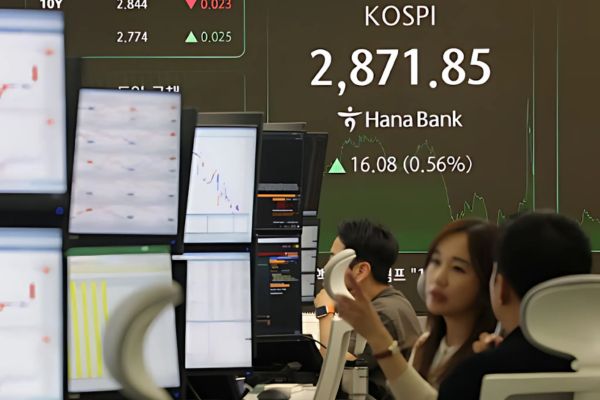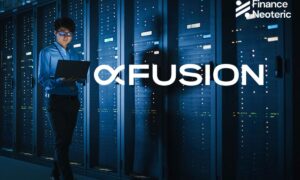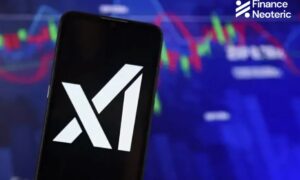KOSPI Index Nears 3,000 Mark, But Samsung Lags Behind in AI-Fuelled Rally

South Korea’s stock market continues its strong upward momentum, with the Korea Composite Stock Price Index (KOSPI) closing at 2,946.66 on June 16, just 1.81% short of the 3,000 mark, despite global uncertainty over Middle East tensions. The index has climbed 12.17% in the past month, leading all G20 markets in performance. KOSPI has now advanced for eight out of the last nine sessions, showcasing investor optimism following the country’s presidential election.
However, Samsung Electronics, South Korea’s largest listed company, is notably absent from the rally. While the KOSPI is up 22.8% year-to-date, Samsung shares have only gained 7.5%. Its share of the total KOSPI market cap has declined to 14%, the lowest in nearly nine years, down from a peak of 25% in January 2021.
Also Read:- Biocon Launches Rs 4,500 Crore QIP to Strengthen Finances
Despite having 5.16 million retail shareholders, Samsung shares remain stuck in a narrow trading range between 52,000 and 60,000 won since October last year. Many investors have resorted to short-term trading strategies, aiming to buy near 50,000 won and exit below 60,000 won for modest gains.
Analysts say Samsung’s underperformance is due to its lag in artificial intelligence (AI) technologies, especially compared to rival SK Hynix, which leads in high-bandwidth memory (HBM) used in AI chips. Over the past month, foreign investors bought 1.82 trillion won worth of SK Hynix, while Samsung attracted just 225.9 billion won. SK Hynix shares hit a record 248,000 won on June 16.
“Samsung shares remain in a box range because investors are unsure whether the company can regain its lead in technology,” said Ryu Hyung-keun, an analyst at Daishin Securities. “What’s needed now is not optimism, but proof.”
Also Read:- Oracle Stock Hits Record High After Strong Q4 Earnings and AI Forecast
Meanwhile, the stock market continues to attract capital. As of June 13, average daily trading value rose to 29.9 trillion won, up 46% from May, approaching levels last seen during the 2021 retail investing boom. Market watchers believe this could be the start of another retail-driven surge.
Stay connected with FinanceNeoteric on WhatsApp Channel for expert coverage and in-depth financial stories.
Disclaimer: This post is for general informational purposes only. It does not constitute financial advice. Please consult a qualified professional before making financial decisions.













